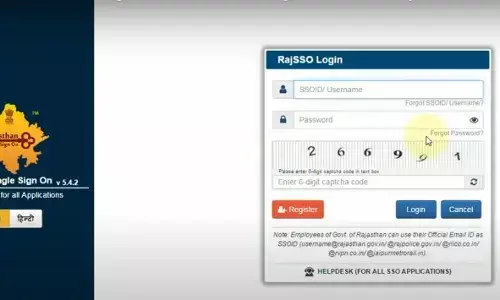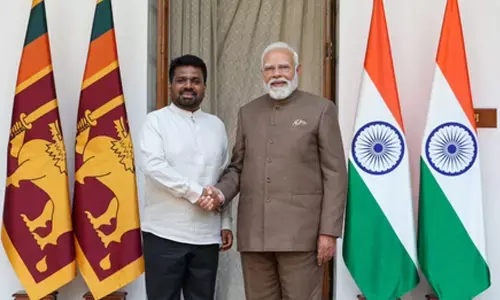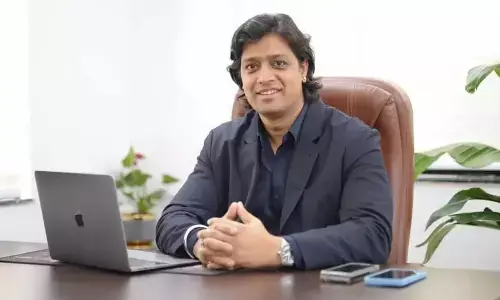From Classroom to Workplace: Enhancing Employability in Post-Independence India

As India approaches its 76th Independence Day, the question arises: Have these changes in education policies effectively transformed the nation's education system to enhance employability? Seeking perspectives from experts, Hans India delves into this matter, exploring how to prepare graduates for a seamless transition from the classroom to the workplace
In the aftermath of India's independence, a new chapter unfolds in the pursuit of enhancing employability. Building upon this foundation, key education policies emerged as cornerstones in shaping the trajectory of the nation's learning landscape. Talking about the National Education Policy of 2020, that charts a visionary path for the future, this policy places special emphasis on imparting practical skills and vocational training.
As India approaches its 76th Independence Day, the question arises: Have these changes in education policies effectively transformed the nation's education system to enhance employability? Seeking perspectives from experts, Hans India delves into this matter, exploring how to prepare graduates for a seamless transition from the classroom to the workplace.
“In the wake of post-independence, the pursuit of elevating employability takes center stage. To bridge the gap between education and the workplace, it's imperative to establish a harmonious alliance. Our educational framework must transcend traditional norms, nurturing both practical proficiencies and indispensable soft skills. This evolution endows students not merely with information but also with the capacity to flex and thrive in real-world scenarios. Endeavors such as internships, apprenticeships, and vibrant collaborations between academia and industry pave the path for a seamless transition from classroom to career. By cultivating this synergy, we ignite a workforce primed to make substantial contributions to India's journey of advancement."said Manisha Zaveri, Managing Director, Career Mosaic.
It is evident that the evolution of the educational framework extends beyond traditional norms, emphasizing not only the acquisition of knowledge but also the cultivation of practical proficiencies and essential soft skills.
Sachin Jain, Country Manager, ETS India & South Asia said that “In a resurgent India that promises to be a global talent powerhouse for the world, there is a vital consensus to focus on education and skilling. The Hon’ble Prime Minister has declared next 25 years, in run up to 100 years of Independence, as Kartavya Kaal, exalting us to focus on our duty towards the nation. We believe that in order to turn the Kartavya kaal dream into reality, there’s a need for an aware, educated and skilled population that is able to drive the India growth story.”He added, “ETS is committed to this vision and is fostering partnerships that will empower our learners with the right skills. For e.g. under the visionary directives of the Hon’ble Chief Minister of Andhra Pradesh, Y S Jagan Mohan Reddy, ETS has collaborated with the Andhra Pradesh government to evaluate English proficiency of students in government schools from Class III to X and take corrective measures to build their global competitiveness for future.”
While India's post-independence education landscape continues to evolve, it is driven by the collective belief in the power of education to shape a brighter future.
Krishan Mishra, CEO of FPSB India, highlights, “At FPSB India, we bridge the gap from classroom to workplace, fortifying employability in post-independence India. By equipping individuals with practical financial skills, a globally recognized certification and ethical values, we ensure they're ready to contribute effectively to the nation's workforce, empowering a financially secure future. Together, we continue to shape a brighter, more financially secure future for every Indian.”
In the pursuit of aligning education with industry needs, collaborative ecosystems emerge as a pivotal connection between classrooms and workplaces.
“Nationally, there is a need for a curriculum that emphasises practical skills and soft skills alongside academic knowledge. The idea is to prepare multi-skilled learners, confident to adapt to novel requirements. The traditional education system must evolve to equip students with industry-relevant competencies which include the abilities to analyse, research, and communicate. Vocational training deserves greater emphasis. Initiatives like internships, apprenticeships, and industry-academic partnerships are instrumental in nurturing responsible and informed professionals. Entrepreneurial skill sets can be integrated in the curriculum at both school and higher-education levels. By addressing these factors collectively, we can enhance the employability landscape and contribute to a more prosperous post-independence India,"said Ratnesh Jha, CEO, Burlington group of Companies, Asia Pacific.
As the nation marches forward, the synergy between education and employability will remain a cornerstone, ensuring that every student not only embraces their role as a learner but also emerges as a confident contributor to the nation's growth story.









